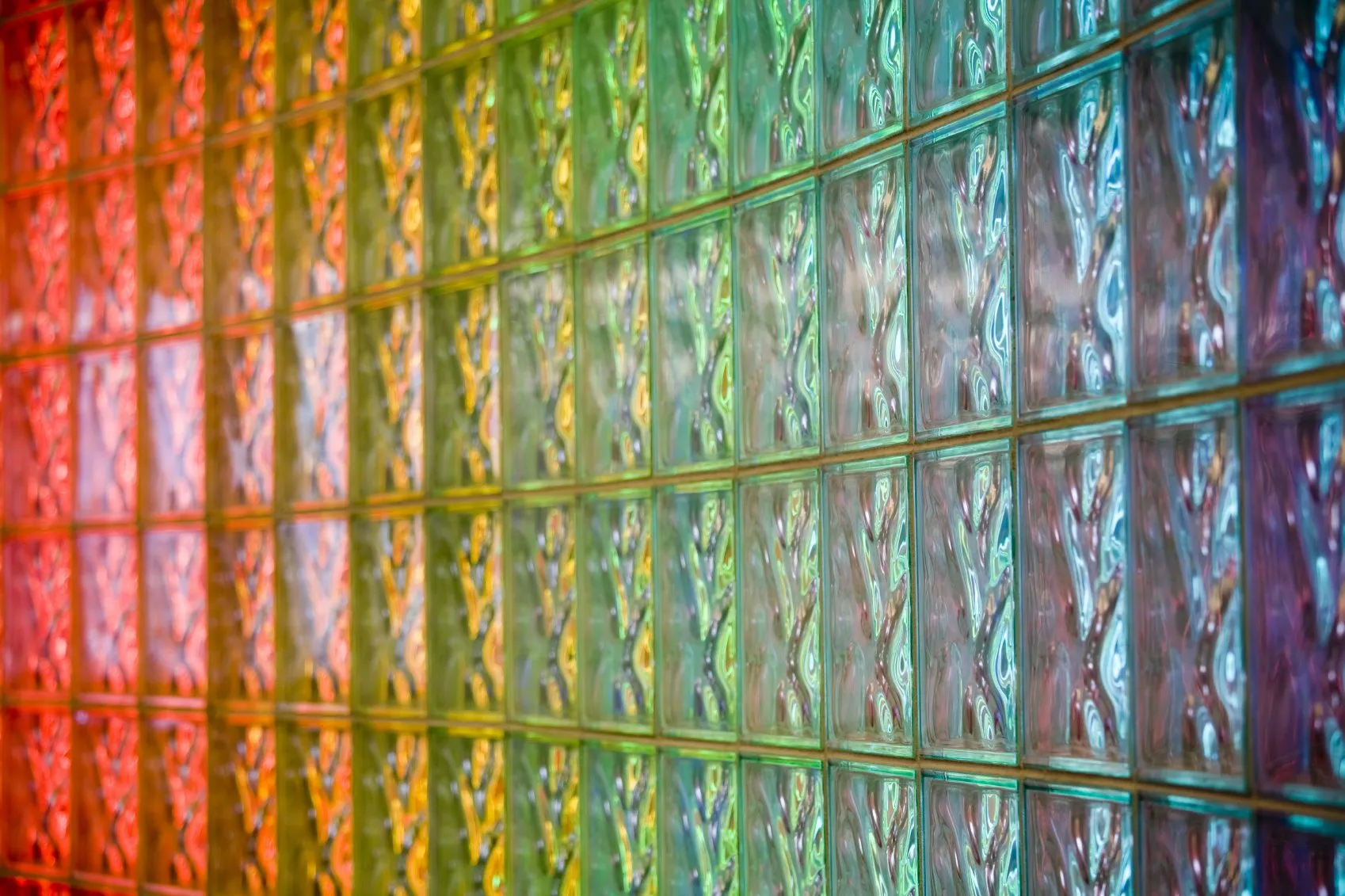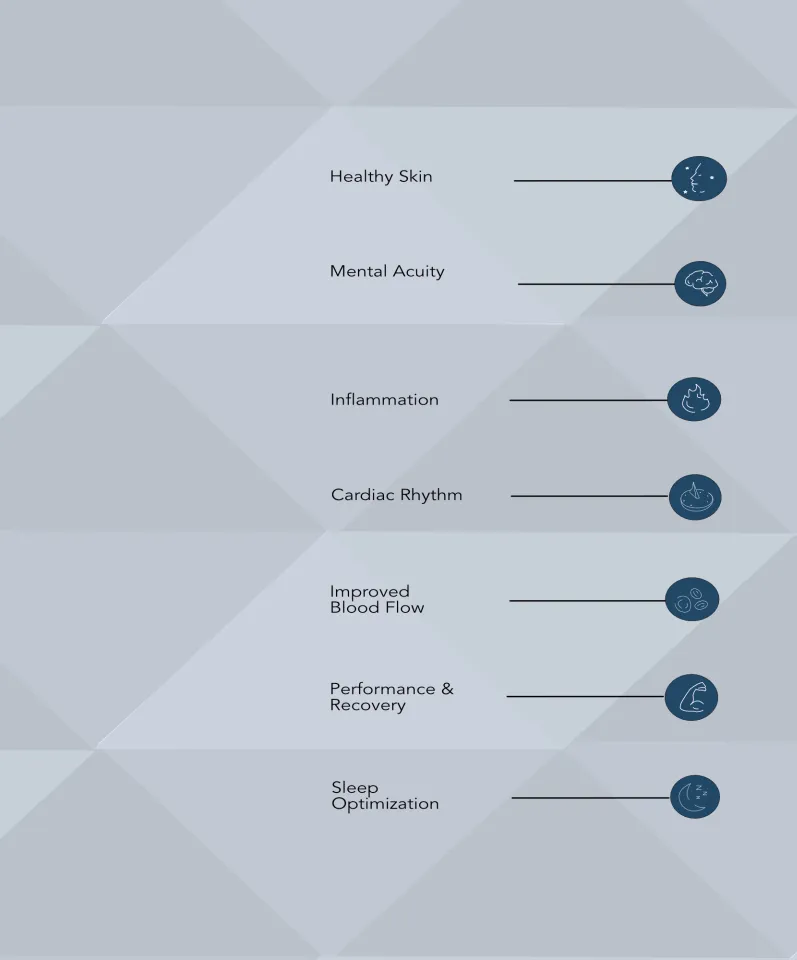
Why Use Light Therapy?
What is light therapy and why should you use it? We’ll answer those questions below and explain how light therapy treatments can improve your health and help you thrive. With so many other health modalities and therapies out there, it’s natural to be skeptical. In this article, we’ll also show that light therapy is an effective treatment backed by science and peer-reviewed clinical research.
Everyone Needs Healthy Light, But Most People Don’t Get Enough
Light is essential for our health and cellular function, just like water, sleep, and the nutrients from food. The human body is designed to function with an abundance of natural sunlight, but with our modern lifestyles, most people don’t get nearly enough light every day. The average American spends over 90% of their time indoors. [1] That’s not nearly enough natural light for optimal health and balance! Worse yet, much of the time we spend indoors is filled with bright blue light from screens and overhead lighting, which can have a negative effect on sleep and circadian rhythms.
Bottom line: everyone needs healthy light, but most people don’t get enough. Instead, they get way too much blue light, resulting in worse sleep and overall health.
Light Therapy Delivers Healthy Light in Your Home
Light therapy is an easy way to add healthy light to your life, in the comfort of your home, at any time of day, no matter the weather or season.
Light Therapy is Backed by Science and Peer-Reviewed Clinical Research
Light therapy is not a wellness fad. It’s a legitimate and widely-used health intervention backed by a large amount of peer-reviewed clinical research. NASA studied light therapy in the late 1980s and 1990s for use in space, and over the last two decades, researchers have conducted over a thousand peer-reviewed trials and studies on various kinds of light therapy (also referred to as photobiomodulation or low-level laser therapy). The clinical consensus is that red and NIR light treatments are generally safe and effective, with a wide range of potential uses.
Light Therapy Supports a Wide Range of Systemic Health Benefits
Light therapy is a rare treatment that really is one-size-fits-all. Whether you’re an elite athlete, a weekend warrior, a busy mom, or a senior trying to stay active, you can benefit from more healthy light in your life. Light is for everyone, and light therapy supports greater balance and a wide range of systemic health benefits. What are the health benefits of light therapy? We’ll cover some of the main ones below.


Enhanced Cellular Function and ATP Energy Production: In conjunction with a healthy lifestyle, light therapy treatments can have systemic benefits because they work by improving cellular health across the entire body. When your cells are working more efficiently and producing more ATP energy, the better you can look and feel
Inflammation and Pain Relief: Light therapy treatments help your body’s natural inflammation process as you recover from illness or injury. Check out this paper by Dr. Michael Hamblin of Harvard Medical School to learn more about red light therapy’s effects on inflammation. Dr. Hamblin is one of the world’s leading photomedicine researchers, and believes light therapy produces an “overall reduction in inflammation.” [2]
Red light therapy also supports arthritis and joint pain relief by improving blood flow to damaged tissues.
Improved Blood Flow: One of the potential benefits of light therapy is a significant increase in blood circulation following treatment sessions. This indicates tissues are receiving more oxygen and other nutrients that are important for healing. At the same time, light helps the body and circulatory system rid itself of toxic byproducts. [3]
Sleep Optimization: Healthy light intake is essential for sleep and maintaining natural circadian rhythms. Our brains interpret light as a sign of when to be awake and asleep, and when to make crucial sleep hormones like melatonin. Bright blue light at night can knock your sleep cycle out of whack, but red light is a lower-intensity alternative that can help support longer, more restful sleep. [4,5,6]
Recovery, Healing, and Performance: Light therapy is widely used by trainers and pro athletes to improve fitness, boost physical performance, and support the recovery process. Muscle cells require a great deal of energy, and grow and strengthen through a process of tears and repairs. Light therapy helps your body produce and use energy more efficiently. Supporting circulation and inflammation reduction with light therapy can also help you heal and recover after injuries and workouts.
Skin Health and Beauty: Taking in healthy light is crucial for skin cells, skin health, and beauty. Red and NIR light promotes balance across the body and skin by enhancing cellular respiration, making energy production more efficient, with less oxidative stress. [8,9] When your cells are in greater balance, your skin will look and feel softer and more invigorated.
Mental Acuity: Mental acuity is a measure of how well your brain processes and responds in the moment. When shined on the head, NIR wavelengths of light can reach brain cells and stimulate the mitochondria in the body’s main processing center. [8] This can improve cellular energy production, enhance blood flow, and support better mental acuity.
Sources and References:
[1] Klepeis NE, Nelson WC, Ott WR, et al. The National Human Activity Pattern Survey (NHAPS): a resource for assessing exposure to environmental pollutants. Journal of Exposure Analysis and Environmental Epidemiology. 2001 May.
[2] Hamblin M. Mechanisms and applications of the anti-inflammatory effects of photobiomodulation. AIMS Biophysics. 2017 May.
[3] Mak MC, Cheing GL. Immediate effects of monochromatic infrared energy on microcirculation in healthy subjects. Photomed Laser Surg. 2012.
[4] Sheppard A and Wolffsohn J. “Digital eye strain: prevalence, measurement and amelioration.” BMJ Open Ophthalmology. 2018 April.
[5] Jung C, Khalsa S, et al. Acute Effects of Bright Light Exposure on Cortisol Levels. Journal of Biological Rhythms. 2010 Jun.
[6] Harvard Health. Blue light has a dark side.
[7] Hamblin, Michael. Mechanisms and applications of the anti-inflammatory effects of photobiomodulation. AIMS Biophys. 2017.
[8] Hamblin, Michael. Shining light on the head: Photobiomodulation for brain disorders. ScienceDirect. 2016 Sept.
[9] Avci P, Gupta A, Sadasivam M, Vecchio D, Pam Z, Pam N, Hamblin MR. Low-level laser (light) therapy (LLLT) in skin: stimulating, healing, restoring. Semin Cutan Med Surg. 2013 Mar.
